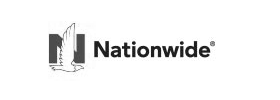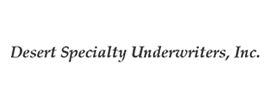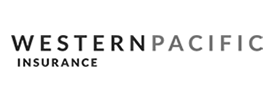
The United States are a litigious society: every business must be aware of and protected from suits brought for any number of reasons. However, there are five types of suits more common than all others. Most, though not all, may be covered by insurance.
1. Employment Discrimination and Wrongful Termination
Many lawsuits filed against businesses are based on allegations of discrimination, harassment, retaliation, or wrongful termination. Most workers are protected from these acts by federal anti-discrimination laws, including:
- Title VII of the Civil Rights Act: Bars employers from discriminating against workers based on sex, race, religion, color, or national origin.
- Pregnancy Discrimination Act: Prevents employers from discriminating against a woman because of pregnancy or a related condition.
- Equal Pay Act: Requires employers to pay men and women the same wages if they perform equal work in the same workplace.
- Age Discrimination in Employment Act: Prohibits employers from discriminating against employees ages 40 or older based on their age.
- Title I of Americans With Disabilities Act (ADA): Prohibits discrimination against qualified employees who have a disability.
Many states have enacted their own anti-discrimination laws protecting workers. Both state and federal laws apply to applicants for employment as well as employees.
Harassment – Retaliation – Wrongful Termination
Harassment and retaliation are forms of discrimination. Harassment is defined as unwelcome conduct based on race, color, religion, sex (including pregnancy), national origin, age, disability, or genetic information. In a harassment claim, the alleged perpetrator is often a manager or co-worker; the plaintiff claims they reported the harassment to the employer who failed to stop it.
Retaliation is the termination, demotion or other action taken by an employer to punish the employee for filing a discrimination complaint or lawsuit.
Wrongful termination is firing an employee in violation of the law. Most wrongful termination claims against employers are based on allegations of discrimination, for instance firing an employee due to their age.
Small businesses are typically more vulnerable to employment-related lawsuits. Many small companies do not employ human resources professionals to ensure internal personnel actions comply with federal and state laws.
Claims alleging discrimination and other employment-related acts may be insured under an Employment Practices Liability (EPL) policy.
2. Discrimination Suits Not Based on Employment
All discrimination suits are not always brought by employees. Suits may be filed by customers, suppliers, patients, vendors, and other individuals with a connection to the business. For instance, a foreign-born customer sues a restaurant for discrimination alleging the wait staff made derogatory remarks about her native country and then refused to serve her.
Some EPL policies cover discrimination claims filed by individuals who are not employees.
3. Wage Law Violations
Many lawsuits filed against employers are based on allegations that the employer violated a federal, state, or local wage law. These laws are collectively called wage and hour laws.
The Federal Labor Standards Act (FLSA) sets the federal minimum wage. It also governs child labor, recordkeeping, and overtime pay. The FLSA creates two categories of workers, exempt and nonexempt. Generally, nonexempt employees are eligible for overtime pay while exempt workers are not. Many states and municipalities have enacted their own laws regarding wages and overtime pay.
Wage and hour suits are often based on claims that the employer failed to pay either the minimum wage or overtime pay. Workers may also contend that the employer avoided paying overtime by misclassifying them as independent contractors.
Suits based solely on allegations of wage and hour law violations are not likely to be covered by insurance. These types of law suits are not covered by general liability policies and are specifically excluded from employment practices and directors and officers liability policies.
4. Torts
Many suits filed against businesses by third parties are based on torts: violating a person’s civil rights. Two types of torts may lead to lawsuits against businesses: unintentional torts (negligence) and intentional torts.
Negligence committed by a business owner or employee may lead to an accident that causes personal injuries or damaging personal property. The injured party may sue the business or the employee for bodily injury or property damage. Intentional torts like false arrest and wrongful eviction can also generate suits against businesses.
Claims against a business for bodily injury or property damage may be covered under a general liability policy. Claims based on certain types of intentional torts are also covered by liability policies under personal and advertising liability coverage.
5. Breach of Contract
A business owner breaches a contract when he or she fails to comply with its terms. Most claims based solely on breach of contract are not typically covered by liability policies. Employers still may be able to avoid the risk of non-performance through the purchase of a surety bond.
We recommend discussing risk management and mitigation protection with your Aspen Insurance Advisor who can give trusted advice on protections for yourself and your business through small business insurance.
Aspen Insurance Agency is in Denver, Colorado, and services clients nationwide. We are a family run business working with multiple insurance carriers to offer our customers the coverage they need at the lowest possible cost. We offer a wide range of personal, commercial, and professional insurance to residential and commercial customers enabling the cheapest rates available. Call to speak to one of our insurance professionals and see how painless insurance shopping can be.

























































